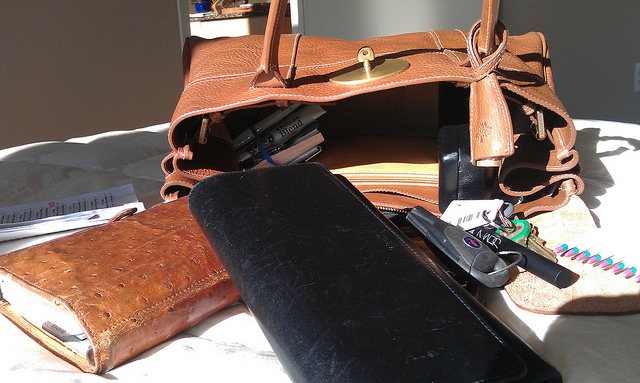A long time ago—I believe it was in the 80s—it became all the rage to be endlessly, relentlessly busy.
Having a Filofax crammed with appointments was a status symbol. It meant that we were really important. I mean, we had all these things that we had to do, so that must mean we were important, right?
In fact, we were so busy that we started having to schedule things that used to occur organically. Where we used to pick up the phone and call a friend when the spirit moved us, we now started “pencilling in” phone calls. “Pencilled in,” because we never knew when we might have to reschedule because we were so busy.
As far as I can tell, that trend still haunts us today. Maybe even more so since we are so connected all the time. That smartphone in our pocket or purse means we are reachable 24/7. There is literally no time in our normal day when we are out of touch.
Here’s the thing: when we are never out of touch with the world, we don’t have a lot of time or energy to be in touch with ourselves.
When we’re always at the beck and call of the endless list of things and people pulling at us, we have no time to recharge and listen to our own thoughts in a meaningful way.
We may have a moment when we think that we need more time for ourselves, but then we’re off to the next thing or person on our list before we can really take in what that thought means. We’re on the busy wheel, and we stay on it because it has come to feel normal. We’re like frogs put in a pot of water. The temperature slowly rises, but the frogs don’t jump out before they are boiled to death because they keep acclimating. Until they don’t. The temperature is rising on us, and we just keep acclimating—until we don’t.
There are a lot of reasons we have gotten to this place. Certainly technology has made it difficult to slow down. We have access to more information in a day than our great-grandparents had in a lifetime. I also believe we have shifted our focus from process to product. Rather than being concerned with how we are doing what we are doing, we’re concerned with doing whatever is faster. Quantity over quality—of goods, of services, of life. We are demanding more and more production from ourselves without the time to think about what we are asking and what the cost is.
When I was a child, my parents’ bosses never called them at home outside of working hours. Never. Since there was no email back then, it meant that once my parents were home they were home. They knew their work day had ended, and what they chose to do with their time was just that: their choice. They had things they did outside of work: piano and karate for my dad, bridge and being a world-class cook for my mom. They worked hard at work, but once they were done they had time for the things they enjoyed and time to just be. It never felt like they were busy all the time.
Nor were the kids. We had school and one or two activities, but that was it. We weren’t scheduled from the moment we got up until we went to bed. And that was a good thing. It made us fall back on our own creativity to avoid being bored. We had to come up with games with our friends, since we were sent out to play after school. I remember rainy days where I would come home from school and curl up and read. Nowhere to be, nothing to do.
What if you took back your life by taking back your time? What if you simply refused to be busy all day, every day? What if you decided to create boundaries around the time during which you are available to the entire world?
From nine p.m. to eight a.m., the only way to get in touch with me is to be on my (very short) favorites list on my phone. Otherwise, straight to voicemail. I’m not a transplant surgeon; it can wait till tomorrow.
What if you were to limit the things you took on in a day to what is realistic for you? What if your day included things you enjoy—things you find restorative—on a regular basis? A walk in the park with just your thoughts, frisbee football, or a weekly card game? Something—anything—just for you, just because you want to.
What would happen if you took time to do what used to be “normal”? What might happen if you spent a day, an afternoon or even half an hour just doing what you felt like doing? Time away from the pull of commitments, plans and lists?
There is lots of research out there on the effect that being so busy has on children and adults. But honestly, do you really need to read the research? Don’t you already know what a toll it takes to be busy all the time?
Disconnecting from being busy requires a mental shift. We have to decide to get off the busy wheel and then follow through on that decision in the face of a ton of pressure not to challenge the status quo. But making that shift is the first step in taking back the most valuable thing in our life: our time. Making that shift, small step by small step, gives us time to detox from the habit of busy.
So that not being busy doesn’t become another thing on a to-do list you never accomplish, know that even making a tiny change—adding one small thing a day that you enjoy or dropping one thing from your extensive to-do list each day—can reap benefits.
Once we notice that we’re in a pot of water getting hotter by the second, we can decide what we want to do about it. Give it a try; turn down the heat, dial down the stress and kick busy to the curb, and watch life open up.
~
Author: Omkari Williams
Image: Rooey202/Flickr
Editor: Toby Israel
~









Read 1 comment and reply